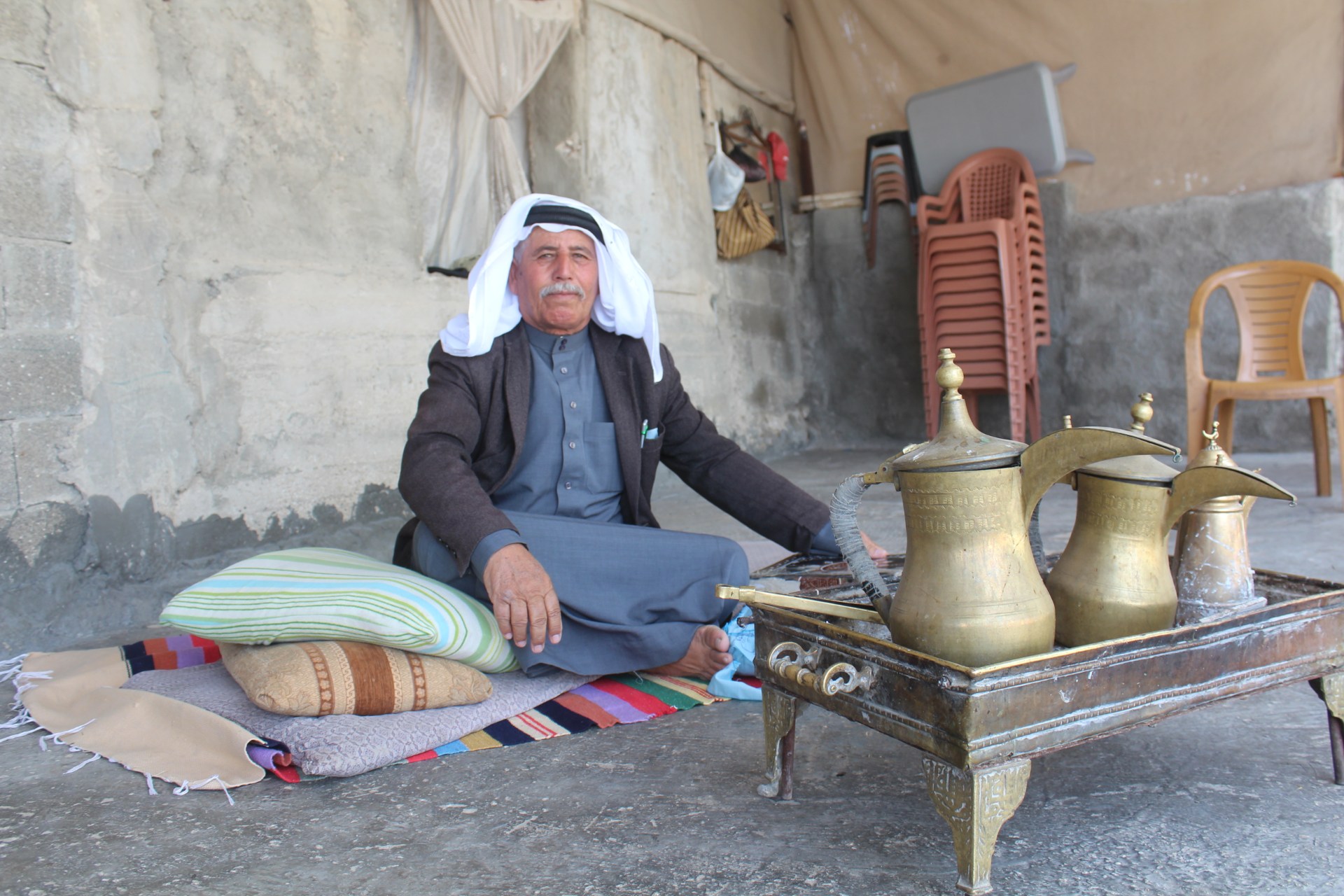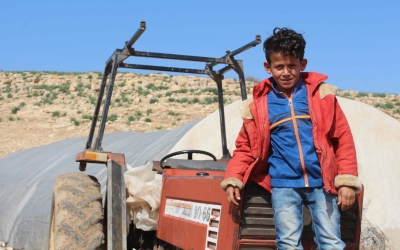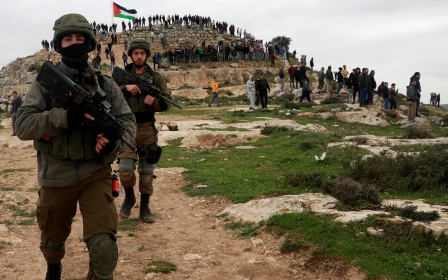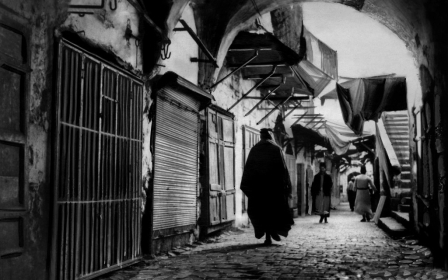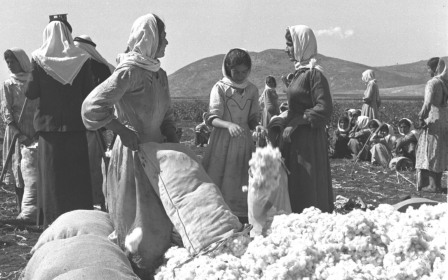Nakba, Naksa, annexation: A Palestinian family's history of displacement
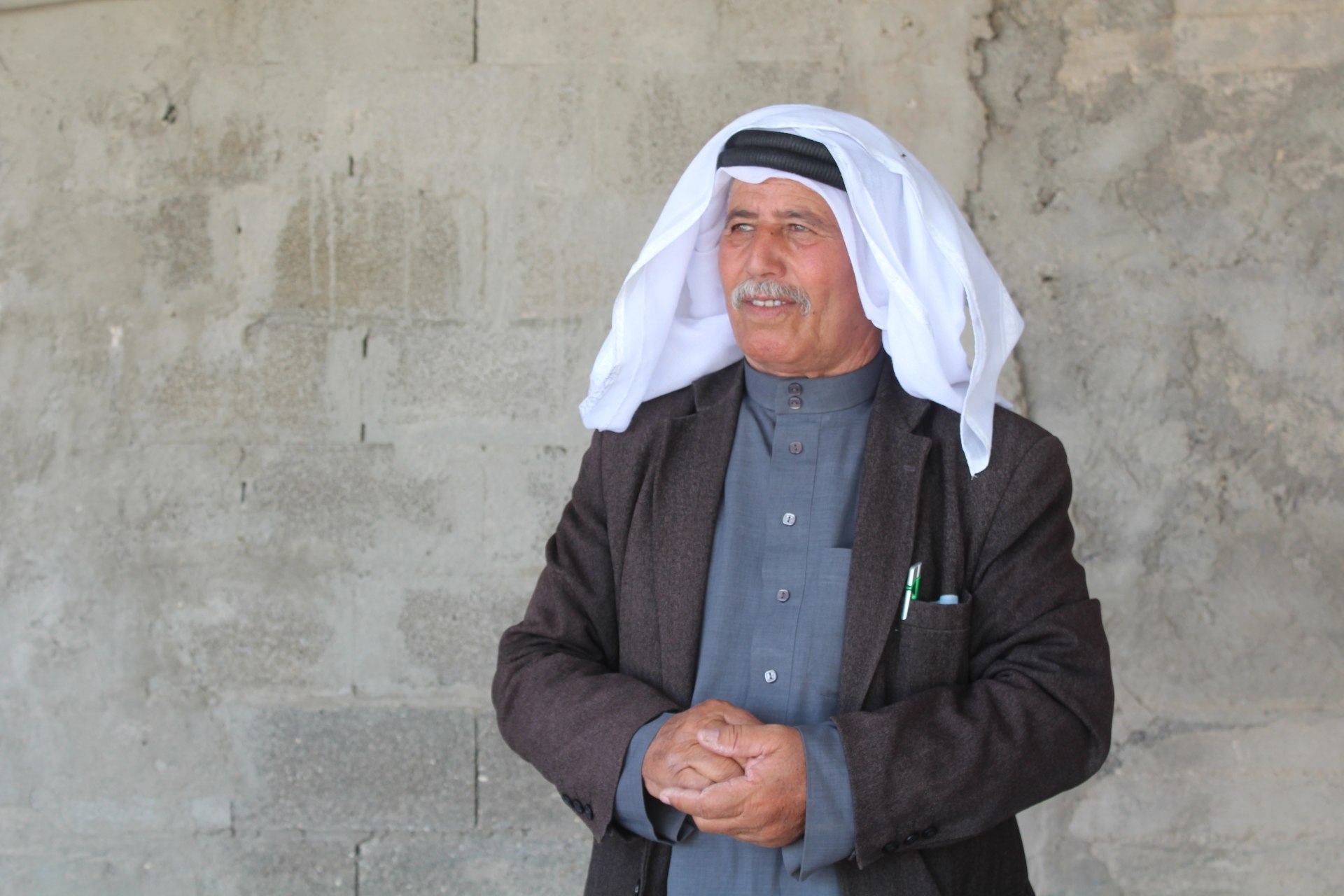
With swift and graceful movements, 74-year-old Rafi Faqha embarks on a daily activity in his humble home.
He carefully lays out his cherished, brightly coloured traditional rug and brushes it down in the narrow yard of their home. Faqha then brews a pot of coffee and fetches his large Quran, before he finally rests on his rug and begins to read aloud.
'Only the air remains for us - they have not confiscated it from us, yet'
- Rafi Faqha, Palestinian refugee
Central to his routine is the well-maintained old rug. It is one of the very few belongings that his family was able to keep when they were forcibly expelled by Zionist militias in May 1948 from their hometown of Bissan, along with the rest of the Palestinian residents there.
Now in the Bedouin community of Khirbet al-Hama in the occupied West Bank’s northern Jordan Valley, where the family eventually settled after becoming refugees, Faqha’s rug takes him back to Bissan, giving him nostalgia and the smell of home.
An occasional cool breeze provides respite from the 40-degree temperature.
New MEE newsletter: Jerusalem Dispatch
Sign up to get the latest insights and analysis on Israel-Palestine, alongside Turkey Unpacked and other MEE newsletters
"This breeze came from Bissan," says Faqha, pointing to distant buildings in the horizon where his hometown is located, just a few kilometres away. He was able to visit home a limited number of times after 1948, but ached over what he saw.
“Our lands and our shops are all still as they were, but the residents are settlers. I felt great sadness each time I visited - like a little boy who was stripped of his mother’s bosom,” he tells Middle East Eye.
Faqha is Khirbet al-Hama's oldest resident, and its last remaining villager to have lived through the Nakba, the ethnic cleansing of Palestinians in 1948 during the founding of Israel.
He was only two years old when he and his family were expelled along with some 300,000 others, a departure they thought at the time would only last several days, or a few months at most.
He said that following the occupation of Bissan, two of his uncles attempted to return home to collect the wheat that remained there to feed their family who had begun to starve.
“They have not returned since,” says Faqha. The family later learned that their two sons were killed in land mines planted by Zionist militias to prevent Palestinians returning to the town.
Faqha’s family remained in Khirbet al-Hama, whose residents welcomed families displaced from Bissan. The 74-year-old says his parents waited for the return to Bissan every day, but they both died here, and were buried far from home.
The Naksa
In 1967, the Jordan Valley fell under Israeli occupation, stirring fears of more massacres or expulsions, causing most of the families in the area to move to Jordan.
"We stayed in Jordan for only about 20 days before we returned here. We were afraid that we would be blocked from ever returning to Palestine," says Faqha.
'We are still here - we refuse to be displaced again'
- Rafi Faqha
After they and other families returned from Jordan, the Israeli army attacked the community and destroyed most of the homes, except for two, which Faqha’s family had bought and were able to defend.
"We are still here - we refuse to be displaced again,” he says.
Despite being able to cling on in Khirbet al-Hama, Israeli policies in Jordan Valley have made living conditions for remote Palestinian communities there far from comfortable, and are aimed at forcible transfer, as documented by many rights groups.
“We live here without basic infrastructure, without water, without electricity, in semi-homes all threatened with demolition, facing daily attacks by settlers," says Faqha.
The Faqha family owned about three hectares of land in the Jordan Valley, all of which was confiscated by the Israeli army on the pretext of military purposes.
“One year ago, the army set fire to the olive trees on our land as part of the military exercises they were carrying out in this area. They refused to allow us to reach the trees and extinguish the fire,” he tells MEE.
Faqha and his family of seven children and 25 grandchildren rely on livestock as their single source of livelihood. But for many families who live in the area, the Israeli army and settlers consistently restrict Palestinians in the Jordan Valley and prevent them from grazing livestock in open spaces.
"Only the air remains for us - they have not confiscated it from us, yet," says Faqha.
Today, with Israel’s announced intentions to annex the Jordan Valley as well as illegal West Bank settlements, Palestinians are once again threatened with displacement, with the experience of both the Nakba and Naksa, as the 1967 Middle East war is known, still fresh in their minds.
When asked about their fate if Israel annexes the Jordan Valley, Faqha starts to laugh, pointing out the reality in which the majority of the area already lies under full Israeli control.
"What more will they take? They control everything in the Jordan Valley, they completely control the water and place it at the disposal of the settlers, just as they control every inch of land here. What more than that will they take?" he asks.
Some 64,507 Palestinians live in nearly 30 larger communities in the Jordan Valley, while an estimated additional 15,000 Palestinians reside in many small Bedouin ones.
There are 11,000 settlers living across 37 settlements in the same area. Yet Palestinians have no access to 85 percent of the land, face heavily restricted access to water resources and home demolitions.
The UN also reports that 46 Bedouin communities are at risk of forcible transfer “due to a coercive environment generated by Israeli policies and practices, which create pressure on many residents to leave their communities”.
Faqha says he has bigger aspirations than fighting for the right to remain in the Jordan Valley - he hopes to one day return to Bissan. “Even if I were between life and death, I would not give up this right,” he says.
Annexation
Khirbet al-Hama is one of 19 Bedouin communities in the Malih area of the Jordan Valley. About 180 Palestinian families live in this area, all of whom are threatened with displacement and the demolition of their properties.
Mahdi Daraghmeh, head of the Bedouin Communities Council in Malih, tells MEE that since 1967 the occupation has been subjecting the area to effectively complete Israeli control. By confiscating Palestinian land for “military needs”, or by zoning the area as natural reserves, Israel has seized land and prevented Palestinians from expanding and building homes, classifying the presence of residents there as illegal.
Daraghmeh believes that if Israel goes ahead with annexation, it would expel the Palestinian residents in these areas.
"Israel wants land without a people and seeks to completely empty the Jordan Valley of its residents, while the Palestinians no longer possess any sustainability factors that would enable them to continue to remain on their lands," he says.
'All the characteristics of settler colonialism have become a reality on the ground, and all that Israel wants now is to give it international legitimacy - which is what it has gained from Trump'
- Jamal Juma, Stop the Wall Campaign
Jamal Juma, coordinator of the Stop the Wall Campaign, explains that annexation is an old process that Israel began implementing in 2002 by building its so-called “security barrier” along the West Bank and redrawing the territory’s boundaries.
From then onwards, Juma says, “the Palestinian leadership should have ended the Oslo Accords and all other agreements with Israel”, as the latter began suffocating areas designated to Palestinian Authority (PA) rule by surrounding them with settlements and related infrastructure, and blocking their development.
Juma adds that when Israel announced in 2014 its intentions to displace the 46 Bedouin communities, it began to enact laws aimed at retroactively legalising settlements.
“All the characteristics of settler colonialism have become a reality on the ground, and all that Israel wants now is to give it international legitimacy - which is what it has gained from Trump."
He says he believes that Israel will implement annexation gradually, starting with the large settlement blocs, before extending to the strategic Jordan Valley.
Juma says Israel would likely close five existing checkpoints surrounding the valley, which would have a devastating impact on the Palestinian economy there and would isolate Palestinians from their natural extension in the West Bank.
Middle East Eye delivers independent and unrivalled coverage and analysis of the Middle East, North Africa and beyond. To learn more about republishing this content and the associated fees, please fill out this form. More about MEE can be found here.


